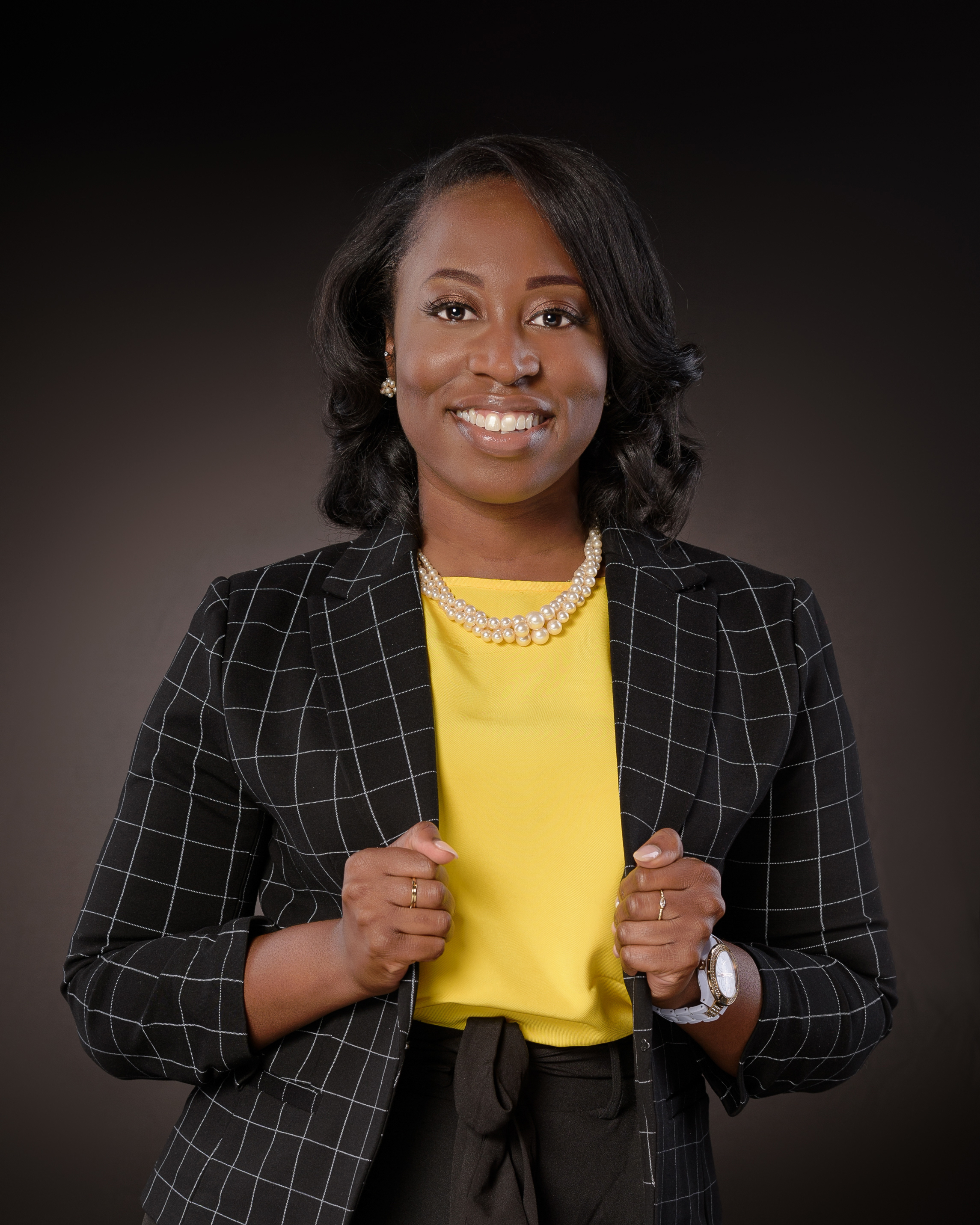Olajumoke "Jummy" Obayanju, JD '16, is the President of the Association of Black Law Alumni and Director of the Congressional Black Caucus Foundation, National Racial Equity Initiative.
Could you talk about your experience as a student at GW Law? Please share memories featuring faculty or staff that made your experience at GW Law a good one.
It’s hard not to think of the indelible faculty and staff who’ve poured into my professional and personal development over the years, many of whom I am honored to still call friends today. There’s my 1L Legal Research and Writing professor, Alessandro Terenzoni, who passionately challenged me as a legal writer and inspired my path in public interest law. There’s my former clinic supervisor and professor, Dean Laurie Kohn, who propelled my family law advocacy and litigation skills and enhanced my critical thinking instilling in me confidence to be a better lawyer. As a Black woman I especially value the support I received from the Black women faculty and staff who often reassured me that I was in the right place—whether it was Bobby Walis giving me a quick pep talk in between classes or my former public interest counselor, Tamara Devieux-Adams helping me secure multiple internships, or Dean Renee DeVigne opening her door for evening talks to guide me through a career decision. As I reflect on my GW Law experience, I am reminded that the institution must not only prioritize the collective voices of diverse students, but also uphold a commitment to a community culture that maintains and values diverse faculty and staff.
What motivated you to continue your engagement with GW Law after graduation, and what led you to become the President of the Association of Black Law Alumni (ABLA)?
My engagement with GW Law is driven by my engagement with the Black Law Student Association (BLSA) and the Association of Black Law Alumni (ABLA). In fact, my dedication to our GW Black community dates to my 1L year, when I volunteered for the Patricia Roberts Harris dinner and then served as BLSA 1L Coordinator for our local chapter. In my second year, I served as DC/MD Sub-Regional Director for the MABLSA regional chapter. When I graduated in 2016, I knew I wanted to remain involved, but was not yet prepared to commit, so I just decided to become an active member of ABLA. A year later, I ran for the vice-president seat. I care deeply about GW Law, but at the core I care about GW Black law students and GW Black law alumni. I care about the Black law student who doesn’t see a familiar face in his or her classroom, or the Black alumni who are disengaged from the GW Law community and are considering how to support the school. My desire to uplift our Black alumni community aligns with the work that I do day-to-day as a racial justice attorney—to elevate opportunities for our Black law students and alumni community.
What is your vision for the future of ABLA?
Since ABLA’s establishment in 1988, it has risen as a prominent GW Law alumni affinity group, ensuring its voice is heard on policies that affect the law school. Over the years, ABLA has held hundreds of professional, social, and academic events for students and alumni, cultivated a community to encourage mentorship for both alumni and GW BLSA, and served an integral role in the recruitment efforts for increasing the number of Black law students and faculty. In 2020, we launched our Funding Firsts, Funding the Future Campaign aimed at raising $75,000 for the Jeanette A. Michael Scholarship Fund. We are already over halfway towards our goal with $44,000 raised. During the Covid-19 pandemic, we’ve held several virtual panels and mixers connecting ABLA members across the nation. We also launched our Theory & Practice, Virtual Brown Bag Series to highlight GW Law Black faculty expertise and increase alumni-faculty engagement. And recently, ABLA spearheaded the creation of the inaugural GW Law Public Interest Advisory Council that will support the GW Law Public Interest Program, advise the Dean, advocate, and fundraise for public interest scholarships. Standing on the foundation of the leadership before me, my vision is to uphold the great work we’ve already accomplished, increase ABLA’s multigenerational alumni participation, embolden administration to center Black voices within the law school, improve the Association’s professional development offerings, enhance our community service efforts, and build ABLA to become the leading resource of all things Black GW Law.
In your opinion, what are the next steps for GW Law, and how can the institution continue to improve for future generations?
As an alumna working in the public interest sector, I believe that GW Law has an opportunity to enhance its Public Interest programs. Because GW is uniquely positioned in the heart of DC it gives the law school a significant advantage compared to other law schools in the area. From experience, finding employment in public interest roles is often more challenging than finding work in the private sector, and if GW Law can commit to establishing a vibrant, active, and visible public interest identity this would greatly improve the experience and prospects for future generations. Specifically, I recommend that the institution prioritize diversifying its faculty and curriculum offerings to align with the 21st century public interest legal landscape, establish resources to build student and alumni connections in the community, and raise funds that exclusively support public interest placements, internships, and convenings. I am thrilled at the establishment of the inaugural Public Interest Advisory Council and look forward to the developments under the new leadership of Dean Dayna Bowen Matthew.


